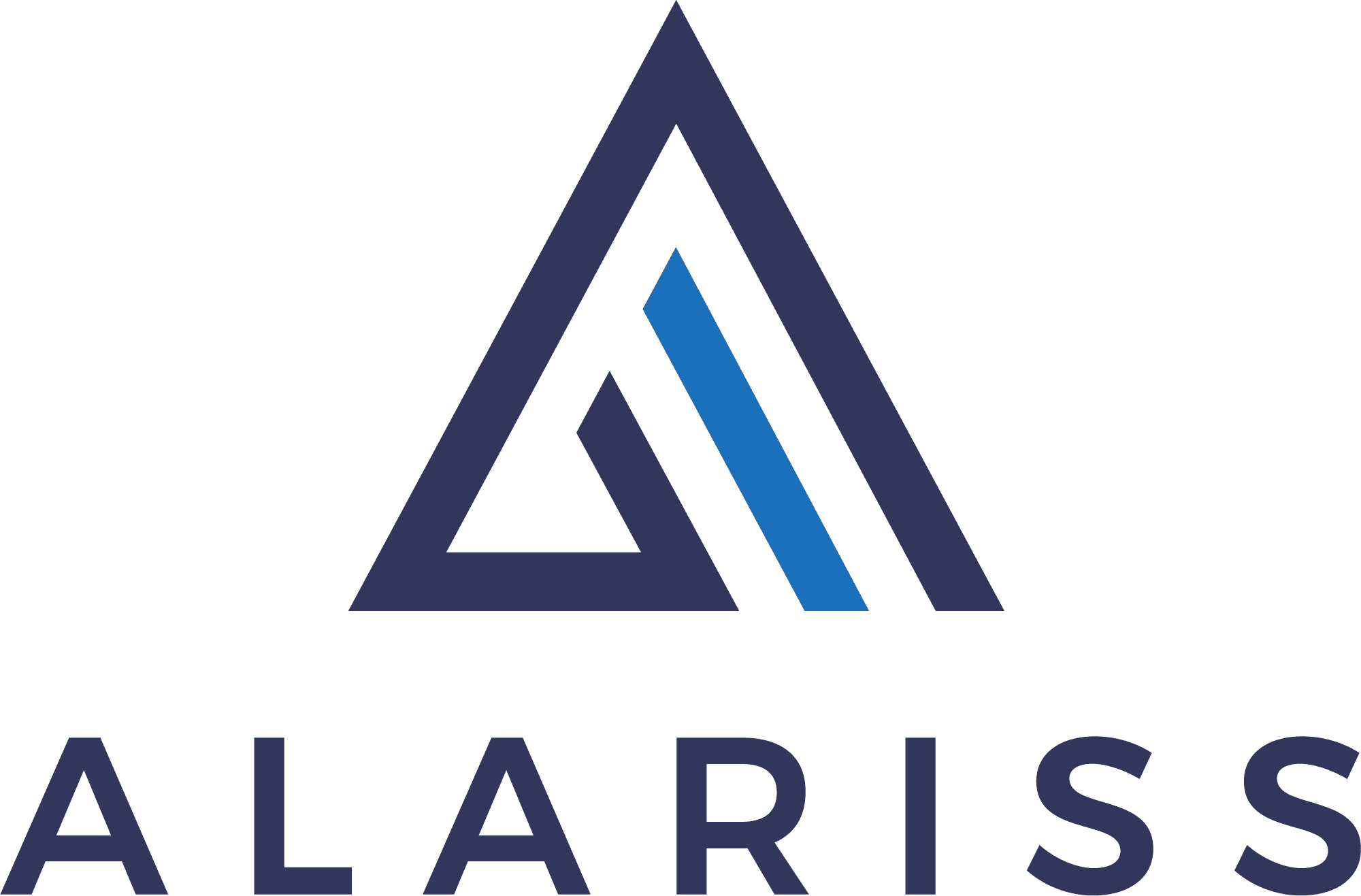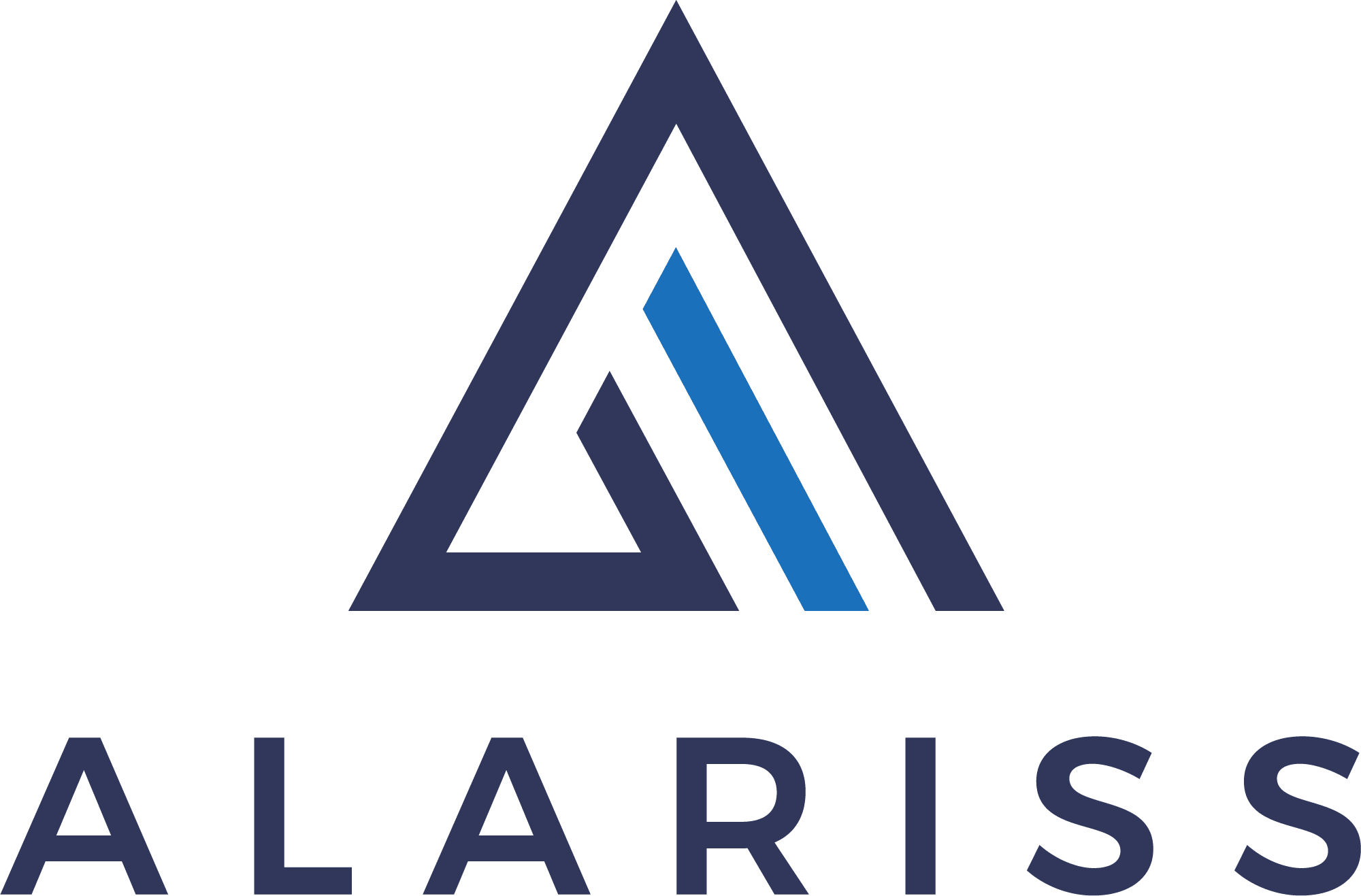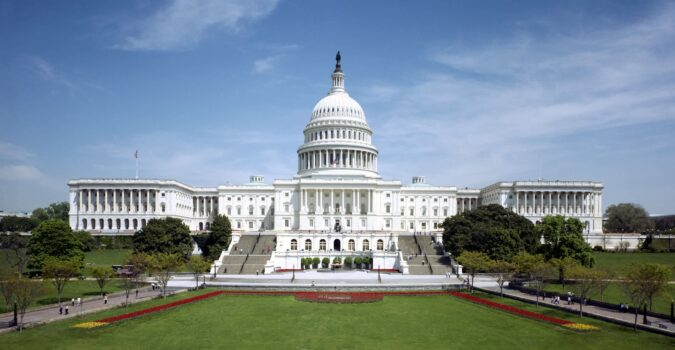Blog
A Place To Stay: A Conversation with Alberto Ramos Elizondo

April 7, 2022
Alberto Ramos Elizondo, chief revenue officer at Casai, joins the podcast to discuss his startup, which is revolutionizing the short-term stay market in Latin America.
All right, we are back. Hi, everyone. My name is Eric, and I am the host of today’s podcast. We have the honor of bringing on Alberto Ramos, who is the current CRO of Casai, which is a hospitality concept design for the nomadic generation. And we at Alariss Global prioritize cross-border connection and business, and so we’re very excited to bring on Alberto to kind of talk through some of his experiences in his career, how he got to where he is, and also the featured topic for this time around, which is the future of work distributed in remote international teams accelerated by the COVID-19 pandemic, which a lot of us have had to experience during this period of the past two years of the pandemic, and maybe it’s subsiding, and maybe it’s not, but we’re excited to dive into it. So Alberto, how are you doing today?
Doing great. Thanks for the chance to chat, Eric.
Yeah, of course. And could you tell us a little bit about where you are right now and how things are going?
I actually joined Casai in December of 2019. It was a really, really fascinating experience for me. I basically started my career in McKinsey as a consultant, I started in public sector and operations consulting. After that, I went to the MBA at Stanford and later worked at Third Sector Capital, which is a social impact investment NGO. For me, it’s always been very important to think of economics and the impact of capitalism and business in the social sector, in the lives of people working in different countries. So for me, travel was always an interesting aspect, especially on the business side of travel. And also for Mexico, where we have a big aspect of our economy and of our international economy being tourism, it has always been a fascinating topic for me how tourism impacts local communities, what the economic downpour is for communities in which we are, how some models have a very limited impact such as all-inclusive, while some other models have a much wider impact.
So after my MBA, coming back to McKinsey, again focused on public sector, then moved to a startup focused on professional services. Again, on this concept of the impact of the economy on the working population and on social impact. We had a very interesting experience there, which was it was an Argentinian-based startup and we had devaluation of the Argentinian peso, basically scuttling an investment round and making things very difficult. So my first foray into startups allowed me to understand the value of the dollar or the value of the peso, really understanding the importance of healthy growth of sustainability, not only environmental and social but also governance and financial sustainability, especially in the high-risk startup world.
Absolutely. And I mean you have such a distinguished career path already, although you’re quite young, I would assume.
Thank you.
Can you think back to, I mean, in this conversation about the impact of the economy on working people and then the intersection of hospitality and its role in that too? I mean, is there a time when you were younger, when you were growing up that you’ve initially became interested in it? Or how did you even find that pathway in the first place?
So for me, I studied economics as my undergrad, and I think this was a very important foundation. In the first place, it taught me about principles-first thinking, which is a very big buzzword right now in the startup world, but for economics where it’s like everything is interpreted as either microeconomics or macroeconomics, you need to understand the principles. It is a very natural way of thinking like every single phenomenon has–you can build it out in sticks and figures, you could explain it with very basic principles, and if not, you don’t truly understand it. So for me, it was that, but also the people I found on the way when I was very young. One of the professors that I most admired, which was a microeconomics professor, he had a lot of focus on the social impact side to work with local church communities to develop social impact of the church programs. And I never forgot that experience where he said that he went to the higher authorities of the Catholic Church in Mexico and told them none of what you’re doing has any impact whatsoever, right?
Which is one on like the–this idea of being skeptical of–being in the social sector doesn’t mean that you’re going to give it an easy pass, you need to be regimented, structured, and data-driven, but also the professional courage which for me has always been a guiding principle of being the social–being focused on social aspects, being interested in that means that you need to be more rigorous and more brave than your typical, we’re donating this much, so we assume that we’re helping someone.
Yeah, it’s kind of like bringing those two worlds together in terms of those data-driven approaches and the things that we “know” to be true, but then also applying that into the more social sector where people are passionate and people want to do the right thing. But applying the concepts to that, I think is something that’s so fascinating. And so then how does that tie into what you do now as a chief revenue officer of Casai? How did you come to Casai? How did you know about it? And what is it like right now?
Yeah, so I learned about it through a classmate from the MBA study. I joined as the general manager for Mexico, so still an operational role. And there, I was very, very involved in the working conditions and how we established the rules, how we made sure that it was fair and that it was a good employment opportunity. We employ everything from high-level strategy engineers all the way down to housekeeping staff and maintenance staff. So for me, it was very important that we have the same set of rules and equally satisfactory employment for everyone. After that and with the pandemic, very quickly it was clear that my talents were needed elsewhere. So revenue was a very simple topic before the pandemic, the rooms would fill themselves basically, but after that we realized that it would require a lot more thought.
So we started a distributed worldwide task force, we met literally daily, and it was throw things at the wall and see what sticks. Right now we’re much more structured, but at that point because we didn’t understand what the new economy would look like, what the pandemic–everything was changing day by day literally, we had a much more open, do MVPs, try them really quickly, get information on the new market, and react as fast as possible. After that area was consolidated, I took head of it, and then I also took head of marketing. Again, something that’s really, really exciting about my job is the ability to get both the analytical and highly sort of scientific aspect of revenue and then the much more creative and free-flowing world of marketing and merge them together. Make marketing more data-driven and make revenue more human-oriented. Right now, one last concern in terms of this is also that we want to make sure that our product is empowering local communities. So we have a lot of partnerships, and more than 50% of what goes into a Casai apartment is produced by local artisans and local artists. So for us, that is how we’re sort of giving back, making sure that if a person stays in Casai, that the first thing they do is they grab their backpack and they go out and they talk to locals, they consume locally, etc.
Absolutely. And I think I’m starting to see a little bit of a pattern or throughline of the side that is more economics or revenue-generating, but also applying that to something that really brings value to people or that is mission-driven and also taking care of the people who are there. And so I think that’s really great, and that’s really fascinating. And just to go back a little bit, I gave the one-sentence spiel or mission of Casai, but from your perspective, what is it that you do both functionally and then also what are the aspirations for Casai in the future?
So for us, Casai is basically revolutionizing the short-term stay market. How we’re doing this, we’re merging curated locality, we’re merging comfortable living and seamless reliability, and we’re powering all of this through technology, both guest-facing technology but also back-of-the-house technology. For us, we have two aspirations that for Latin America there is no better way to stay, no better place to stay, for any guest than Casai. There becomes a point where it makes all the other models seem worse by comparison. But also for property investors, it’s also important for us to show that this market has huge profitability potential because we believe that the growth of the sector depends on both the demand and the supply of these kinds of properties. And we are a very guest-facing company. And for us, both the guests and our investor partners are guests in a way.
Great. Which kind of brings us to like the people of Casai, I mean both internally and the customers, who do you work with? And also I think something that the common person would ask is when you think about the Airbnbs or the Expedias, how does Casai differentiate itself or what makes it unique?
Great. So for us internally, this was something that was already set up before the pandemic and we really blend into it, which is we’ve always been a globally distributed company, we’ve always been a remote-friendly company, and this has just become more so after the pandemic. So I would say all teams work with all teams, so we consult directly with customer experience, operations, finance, product, strategy, etc. And they consult with us, and the idea is that we have a cohesive experience that we can offer both guests and investors into why Casai is the best. And this goes into sort of why we think we’re different. So in the age of aggregators, in the age of mass supply platforms, consistency, curation, and just ensuring the reliability that every single experience will be, fundamentally have the same value. Very different depending on if you’re staying at a beach of course than if you’re staying in the city, but there’s a trust there and a loyalty that we think that is revolutionary compared to, again, the age of meta-search engines such as Expedia.
Okay, very interesting. So it’s kind of like, as opposed to the quality of the experience being up to an Airbnb host or like the individual who would be bringing somebody on, it seems that the company perhaps is able to standardize the quality and make sure that it’s up to the highest level.
So for us, quality is beyond the quantitative aspects, and it goes into the experience, and it goes into sort of the feelings that we’re generating. This is a little bit of how the human and the data-driven combine. So for us, there will be differences in markets, it’s impossible– One example, in Mexico City it’s very frequent that apartments don’t have air conditioning because it’s a very temperate kind of city, very much like San Francisco. But the feeling of staying in a Casai is what we want to make sure is the same everywhere. And this is a much more complicated and nitty-gritty kind of goal than just to say we’re going to have the same X characteristics everywhere, but that’s why for us it’s a laudable goal, it’s something that we’re striving for, it’s why it differentiates us. Because it is very much about the human experience of the guests, how they feel staying, and how they feel in the city.
And is there such a thing as your typical guest? I mean in kind of imagining who uses Casai or who is receptive to this idea of the feeling or the experience of a Casai stay. I mean, is there your typical kind of target market or customer? Or is it kind of across the board?
So we have three user segments, roughly speaking. We have visitor travelers, we have business travelers, and we have people who are working from anywhere or taking–working from a different location. The unique thing about how we perceive them is that we don’t necessarily think these are different people, we just think that they are people–the same people at different points in time of their life. And with the pandemic, it’s becoming more and more that these segments are all getting together and integrating.
I like what you were saying, you at Casai and the team has been global before a lot of companies have “had” to become global in midst of the pandemic. And so I’m curious to know a little bit about– As you expanded to more places, specifically in Latin America, this idea of keeping it local or you mentioned artisans or trying to employ or take on local, I guess you could say, talent or resources. What does that look like in the future as you continue to grow? Do you have relationships with these people? Do you have people internally who are connected to places in different geographies?
So a very interesting aspect about Casai that I think differentiates it from the majority of companies is that very early on, we had to face two different geographies, Mexico and Brazil. And typically a company would say this is the head office and then these all are the client offices. For Casai, this wasn’t an option because both markets for us are literally equal in size. Brazil obviously is the larger market, but the US primarily serves the Mexico market, and so both of them have equal opportunity. So from very early on we have built– We do have a global team because consistency is important, but the global team is 50-50 Mexicans and Brazilians.
So to answer your question, we have always very, very carefully managed our employee base and our places in different cities to be representative of our guest base. Something that’s a very early lesson for us is that even with Latin America, which to the outside seems that the culture is very similar, it’s very difficult, I would say impossible, for a Mexican to genuinely represent Brazilians and vice versa. In the marketing team, this is crucial. So for us, global is crucial, but global needs to be an equal partnership. Another thing that we managed to do, and again, representing through our employee base or guest base is that we’re very proud to say that we are 50% male, 50% female all the way down the line from VPs all the way down to operational staff. We didn’t do it necessarily on purpose, but it just happened because of our culture, and it is amazing to see that in every single level of the company, it’s 50-50. Country, gender, we’re sort of very– Diversity and inclusion for us is crucial. So this has been something that has organically become a part of why Casai can deliver these local experiences. And the last thing I will say is that we’ve seen huge potential from typically underserved labor markets within the cities where we’re hiring a lot of top engineering talent and analytical talent from places where we would normally, or a company in Mexico City or Sao Paulo would normally never look for talent. This has been a huge advantage for us, some of our biggest rock stars come from these markets that are not a typical focus for someone for a physical operation in the capitals of the city. So we’re very, very excited about continuing the remote even as restrictions reduce.
Absolutely. And that I think is truly unique. I mean, for any company, but especially the startup space is just kind of achieving that level of diversity and difference in opinion and that representation, almost not even intentionally. I think that’s such an incredible thing that I’m sure will propel the team forward. And in terms of it more or less all being remote, do you feel that connectedness with your team? Do you feel that you’re able to bond with those internally and really get to know others?
So I think a couple of challenges that we faced and we’re still facing because all in all this company is very young, we just celebrated our third anniversary in February. So first of all, I think sort of an abundance of meetings was the first symptom where we didn’t really know how to do fully remote, be asynchronous work. It came to a point that everybody’s agenda was filled from nine to five with meetings and you would start working on your own projects at 5 p.m. We’ve been doing a lot of internal work to improve this, but there’s another aspect, which you mentioned, which was the personal connection, and on this I think this is something that we rely on not only internally but externally.
So we’ve seen a shift of business travel from people traveling maybe one or two days for a meeting, people traveling a month or two weeks to just sit down with a different team at a different place, or get together a leadership team and just spend two weeks together. In general, also in the US, you’ve seen that people paying for fixed office space have become much smarter than people paying for Airbnbs to stay, for example, for leadership retreats or for team retreats or flexible office spaces. So for us, travel and physical is not going away, but instead of it being sort of systematic, I would say thoughtless, you have to go to the office and clock in and clock out, it’s going to be much more purposeful. Where people will go to meetings with specific missions, people will travel to different countries to meet each other for specific missions and reasons, but it won’t just be, oh, you need to come in at this specific time and leave at this specific time.
So perhaps something that’s more intentional in this, not necessarily doing these meetings and providing perhaps more value, or kind of respecting these opportunities to come together in person as opposed to it just being a default.
Exactly. And I think this is super important because it’s already been reported widely of this concept of the coworker ghosts where– Especially with these people working in support functions or not directly working with you, it’s very easy to stop seeing them as a person and just start seeing them as a service provider within the company. And it’s important to be aware of this when you’re building the culture and actively work to build those connections.
Sure. Okay well, you touched on this in terms of what the future looks like, but from your perspective, both within Casai, what are some things that you’re looking forward to personally with the team as it continues to grow? And then also just in this new era of globalization and borders not being as much of a consideration in terms of work or finding work, what do you think is in store both for the company or just in general as we see startups move towards a more global approach?
So in the short term, we’re very excited about growth. We’re launching cities basically every month in this year. Happy to say that our 2022 gross booking value is higher than all of 2021, and we’re only in month three. In the longer term, I think there’s a big challenge for international labor markets at this point, and we’ve been seeing some turnover where the US is starting to consider Mexico as an equally valuable labor market for their needs. And obviously for us, this is painful, it makes it harder for us to maintain and to hire a great workforce than it was before the pandemic.
But personally, I think it’s an amazing development, where I truly believe that there will be sort of an equaling of opportunity, an equaling of growth, and a lot of opportunities for people who before never have been able to get the mentorship or the education to truly shine, now are in the space where they can. And I expect this to go eventually from not only US looking at Mexico, but also Costa Rica, Honduras, Panama. All these places have great talent, have great engineering potential, and I really, really hope to see the entire region grow with this.
One big challenge here, I think in terms of diversity and equality, there’s a lot of focus on other topics, but there’s a huge bias that we call the language bias where you assume that if someone is not as fluent in your language, you assume that they’re not as intelligent. And I think it’s a hard topic to talk about and even goes beyond the actual language but also to slang and sort of jargon. Or you assume that they don’t know all the acronyms, that they don’t know the industry, whereas that is something just very basic you can search in Wikipedia and catch up to speed. So I think a huge challenge in this new age for companies is to really think about how to fight that bias, how to understand that everyone obviously sounds more intelligent in their native language than in yours, and through really a just hiring process so that these biases do not limit opportunities.
Yeah, in this sense in this new age of globalization it just seems that it truly is on us and on the individual to just be aware and to reconsider our biases in terms of our language capabilities. Or if someone doesn’t understand this or that joke, idiom, word, and kind of just rethinking what it means to be a qualified candidate.
Definitely.
Cool. Lastly, I would just love to know a little bit more just from your personal standpoint, if someone– Something that you’ve learned along the way or any advice you’d would want to impart on someone, maybe who’s younger or someone who’s kind of going into a more global career as they look forward to hospitality, startups, something more specific to Casai, or just on a general level. What is something that you’ve taken away that maybe you can impart on us?
So I think the value of the guest, the user, the consumer, is sort of a very old lesson, but I think something that most companies haven’t really learned and that is very hard to learn. It’s not only about sort of benefiting them first but really diving deep into the psychology of the user. One thing that’s very common, for example, in hospitality is how do you drive loyalty? Is that you’re driving it through loyalty programs. And that does appeal to a very specific subsector of the points champions of the world that are just looking to maximize as much as they can, but a great majority of travelers do not think that way, and what drives their loyalty is very different. And so when you’re thinking about how to drive growth, first of all it needs to be through retention, recurrence, and referral. Like as we move on, the paid advertising becomes more and more economically unsustainable for a majority of companies, at least as a primary growth focus. And thinking of loyalty, thinking of sticking is super important.
In the startup world, Latin America has seen a bevy of new unicorns, they’re all in the fintech space, and they’re all sort of playing the same game. And the one that’s going to win is not the one that gets sort of the biggest cash back or the gifts or that spends the most on marketing, it’s the one that manages to keep their customers even if a competitor is offering 20-30% more cash back. In terms of a personal note, I think it’s super important to be open and aware of opportunities in your company to understand that when you’re growing, you need to do your job and then do something else. And you first need to prove that you can do that something else before you get hired. Something that I noticed a lot with new generations right now, and I don’t want to play into the stereotypes of entitlement, but there is very much a belief of you give me a job and then I’ll prove that I can do it. Whereas I think in my generation, and especially because I’ve lived through the financial crisis, I’ve had to live through local devaluation, pandemic, it was very much– My thought is the opposite, is like let me show you and then let me ask.
I think this is super important, and it drives into gender equality as well where everyone should also be very comfortable and empowered in asking and requesting and being owners of your own career. As a revenue director, I am focused a lot on growth, and it is sort of this career path that everyone’s asking like how do I get a job there? How do I get a job there? And it very much is just like, if there isn’t an area, just tell someone to start it and say that you’re going to do it. I think it’s super important to have that ownership to understand that it is not your boss’ job, especially in the long term, that you grow your career. It is very much your job to set your path to understand where you want to go and to extend this to other companies. It doesn’t have to be within the company, but you need to know as straight as it is what your five-year plan is and you need to every week be able to note in a journal what you did that week to go on that path.
That is super–yeah, that is fascinating. Especially as someone who comes from the Gen Z generation, or I’m right on the cusp, I guess. But I think it’s exactly what you’re saying, is this common thing of show me, don’t tell me. And I am amongst a cohort of a lot of people who are either looking for their first job post-grad or just finishing their first job, and there are these new ways of learning these skills, of being able to demonstrate that you’re a qualified person instead of just saying let me prove it to you once you hire me. Have you found that there’s, with more digital means, is there a way or maybe an applicant comes your way or someone who wants to work for Casai that you see that’s, oh yeah, like sets someone apart as someone who’s done their homework or someone who has the experience especially more in the present?
So I think for me, tried-and-true has always been the experience interview, where I ask for very specific experience, and I want to ask as much detail about it. And it’s very much in the way that people communicate very much shows ownership. Again on their own–sort of owning their own life, their own agenda, owning their own work, and being able to step beyond the bounds of what is expected of them. For me, this is always a very highly rated skill and something that I want. I don’t–I see myself less and less caring about past experience, about bona fides. And caring more about these snapshots and how people solve problems and think about it. For me, one thing that’s super important as well is sort of the willingness to dissent, which relates to having ownership. One question that I love to ask is what is a time that you’ve been someone who had absolute power in a decision to do something differently. And this shows to me a), the ability to influence, the ability to sort of own the agenda but also b), passion and ownership. The first part of that question is when did you even care that somebody was making a wrong decision in your opinion and you said, no I’m not going to allow this to happen?
Wow, yeah. I definitely see the agency in having intentionality and really owning it. And I think that that’s something that a lot of people in my generation are not used to, they feel the need to be following the rules or be following convention of, oh, what is it that someone wants to hear? What is it that someone wants to see? And so it’s really nice and kind of validating to hear that, experiencing that level or demonstrating that level of intentionality and individualism is important.
And one thing I will just say to add, which is again, Gen Z gets a bad rap, one thing that I know very well. And I notice it even in my coworkers who still remain in McKinsey, which is one of the more rigid traditional structures you can find. Is that the role and the rights and the feelings and the importance of the junior employee is growing a lot, and it’s being led by Gen Z, and it is a correct thing. Where like everyone has an opinion, if they don’t have an opinion, then I don’t want to hire them basically. And more and more of these companies that try to push back against this are being challenged because of the Great Resignation, even at the very low levels of qualified analytical talent, and recent graduates are stepping more up and saying I have an opinion, this is what I think, this is what I say. And I think this is a good move, I think this is one of the positive things that we can see of this new change in the way that we work. And more and more even the most traditional companies, at least in the US and Mexico, are going to have to–and Brazil, sorry–are going to have to take into account what this new generation thinks and their ideas. And I think this is a very positive change.
Great. Thanks, Alberto. That’s a very cool perspective that I have never heard. As someone who is in the younger generation, it’s nice to hear we bring something to the table, it’s not all just the bad rap that we sometimes deserve.
What I love about this whole idea is that millennials don’t remember that two, three years ago we were being attacked because we wanted to buy avocado toast. We are literally doing the same thing to the Gen Z, and for me it’s so silly because we’re not talking about 10 years, like it happened five years ago that we were the target, that everybody was criticizing us, and now we’re like, no these guys are worse. And it’s like everyone–
Yeah as someone who is on the cusp of the older side, I mean I think there’s even a differentiation or a dichotomy in Gen Z where the 24-year-old Gen Zs are not–are hesitant to affiliate with the 18-year-olds Gen Zs.
The thing is, like part of the generation is they’re younger, they also–they’re younger and they’re kids, so in your perspective they are maybe not as wise or they don’t fit your idea of what is good or bad in the workplace. But I think it’s hilarious that the same cycle keeps repeating, and I’m sure that the Gen Z’s are going to criticize Gen Alpha and be like, oh, those guys are the worst.
Yes. But also to say it’s so nice to see that you being on the other side, you’re aware of this and you care about the values and the things that people bring regardless of what age they are or who they are. And I think that’s what a lot of people who are looking for a job or looking for any opportunity, nowadays, really value. So, yeah. Thanks so much, Alberto. I mean it was such a pleasure getting to speak with you and learn more about what you do, your perspective, learn more about Casai. And of course now we all know where we should go if we’re ever visiting Mexico City or Brazil or the places that Casai is launching more into. So thanks for imparting your wisdom on us and for sharing some of your thoughts and we really appreciate it.
Thanks so much, Eric, for the opportunity. It was a wonderful chat.





